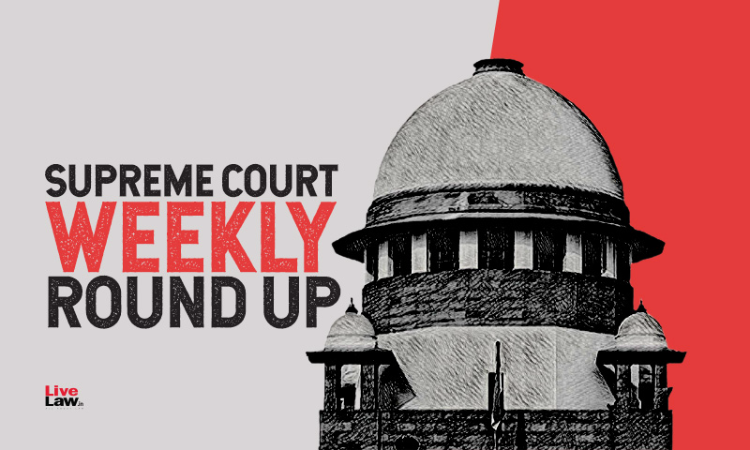Supreme Court Weekly Round Up, October 18 To October 24, 2021
Nupur Thapliyal
24 Oct 2021 5:27 PM IST

Next Story
24 Oct 2021 5:27 PM IST
JUDGMENTS THIS WEEK1. Distinction Between Tax And Fee Has Been Substantially Removed, Says Supreme CourtCase Title: Jalkal Vibhag Nagar Nigam and Ors v. Pradeshiya Industrial and Investment Corporation & Anr. Citation: LL 2021 SC 583The Supreme Court observed that the distinction between a tax and fee has been substantially removed.The practical and even constitutional,...
